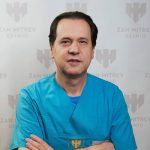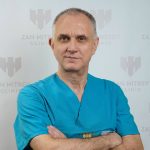 00389 2 3091 484
00389 2 3091 484
MEDICAL SERVICES
CARDIAC SURGERY AND INTERVENTIONAL CARDIOLOGY FOR CHILDREN (0-18 YEARS)
Surgical treatment of congenital heart defects in children
Congenital heart defects are divided into acyanogenic (when the child’s skin does not have blueish tint) and cyanogenic (when the child’s skin has blueish tint).
- Correction of atrial septal defect
- Correction of ventricular septal defect
- Aortic coarctation
- Correction of pulmonary stenosis
- Treatment of existing ductus arteriosus
- Correction of transposition of the large blood vessels
- Correction of congenital heart defect
- Double right ventricle (DORV)
- Therapy of Fallot

Most common congenital heart defects
Correction of atrial septal defect
Atrial septal defect is when the child is born with a rupture between the atriums. When this defect is isolated, we usually wait until the end of the first year to close spontaneously. The correction can be performed with interventional procedure or cardiac surgery.
Transposition of large blood vessels
Transposition of the large blood vessels is a congenital heart defect (present during birth). Due to abnormal development of the fetus’s heart during the first 8 weeks of pregnancy, the large blood vessels that are carrying blood from the heart to the lungs and body are connected incorrectly.
Treatment of existing ductus arteriosus
Before it is born, the baby has a blood vessel that goes between the aorta (the main artery in the body) and the pulmonary artery (the main artery to the lungs), called ductus arteriosus. This small vessel usually closes immediately after birth when the baby starts to breath independently. If it does not close, it is called patent ductus arteriosus. It can cause problems later during the life. In most cases, the physician will close the opening using medications. If the conservative approach proves as ineffective, it is necessary to make a correction which can be using an interventional procedure or cardiac surgery.
Double right ventricle (DORV)
Double right ventricle (DORV) is a heart disease present since birth (congenital). The aorta is connected to the right ventricle (the heart ventricle that pumps oxygenized blood to the lungs), instead to the left ventricle (the ventricle that normally pumps oxygenized blood to the body).
Therapy of Fallot
Therapy of Fallot is a rare condition that occurs due to combination of four hearth defects, present during birth (congenital).
- Ventricular septal defect
- Pulmonary valve stenosis
- Aorta that receives blood from both ventricles
- Right ventricle hypertrophy
Heart catheterization in children
Heart catheterization is a procedure used for diagnosis and treatment of certain cardiovascular diseases. During the heart catheterization, a long, thin pipe, called “catheter” is inserted into an artery or vein in the loins, neck or hand and it passes through the blood vessels to the heart.
Using this catheter, the physicians are able to diagnose and treat many heart conditions and problems, including the congenital heart defects.
Heart catheterization in children is used for:
- Getting a detailed image of the heart and heart defect
- Monitoring of the blood flow in the heart
- Identifying pressures in various parts of the heart and lungs
- Control of the heart cuspids in order to see if they function properly
- Measuring the oxygen level in various heart, lungs and blood vessels areas
- Measuring the electric activity of the heart
- Control of possible problems after surgery
Other doctor’s from this department

Vilma Ampova Sokolov MD
Specialist in internal medicine - subspecialist cardiology
vilma.ampova@zmc.mk

Shpend Idrizi MD
Specialist in internal medicineSubspecialist cardiology
shpend.idrizi@zmc.mk

Ivan Milev MD
Specialist in internal medicineSubspecialist cardiology
ivan.milev@zmc.mk



